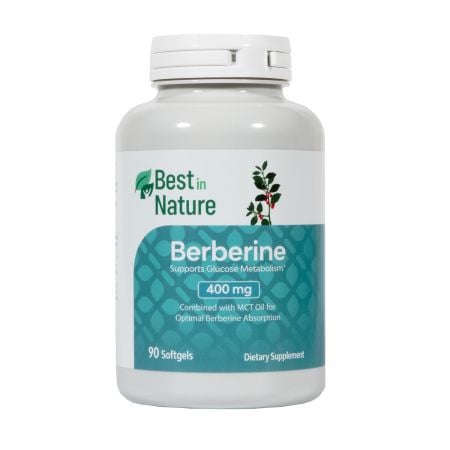
Chemotherapy-induced nausea (CIN) can be one of the toughest challenges to navigate during cancer treatment. It’s not just the queasiness—it can disrupt your appetite, energy, and overall quality of life. You may already be familiar with common solutions like anti-nausea medications such as ondansetron, or natural remedies like ginger, peppermint, and acupressure bands. These options can help, but sometimes, they’re not enough to fully manage symptoms. That’s where Berberine comes in—a natural compound found in plants like Berberis aristata and goldenseal. While not as well-known, Berberine is gaining attention for its potential to support nausea relief in ways that complement existing treatments. Let’s explore how it might fit into your care plan.
Understanding Chemotherapy-Induced Nausea
If you or someone you love is undergoing chemotherapy, nausea might already be a familiar and frustrating side effect. Chemotherapy-induced nausea (CIN) is extremely common and can make an already tough treatment process even harder. It happens when chemotherapy drugs irritate the lining of your stomach or trigger signals in your brain that cause you to feel sick.
To manage CIN, doctors often prescribe medications like ondansetron (serotonin receptor antagonist), corticosteroids, and aprepitant (neurokinin receptor antagonist) which work by blocking these signals. These medications can be effective, but they don’t always completely eliminate the symptoms—and they may come with their own side effects. That’s why many people turn to natural remedies like ginger tea, peppermint oil, or acupressure bands for additional relief. While these options can help, they don’t work for everyone, leaving some patients searching for other solutions.
What is Berberine?
Let’s take a closer look at Berberine, a natural compound that’s been used for centuries in traditional medicine. It comes from plants like Berberis aristata and goldenseal, which have long been prized for their healing properties. Berberine is a bright yellow substance known for its ability to support overall health in a variety of ways.
Research shows that Berberine can help improve metabolic health by regulating blood sugar levels and supporting a healthy gut. It’s also known for its powerful anti-inflammatory effects, which can be beneficial for managing a wide range of health concerns.
Traditional medicine systems, including Ayurveda and Chinese medicine, have used Berberine to treat digestive issues and infections. Today, it’s gaining attention as a natural option to support health in modern ways—including as a potential ally in easing nausea during chemotherapy.
Potential Benefits of Berberine for Chemotherapy-Induced Nausea
Berberine has several fascinating properties that may indirectly help ease chemotherapy-induced nausea (CIN). Let’s break it down so you can see why this natural compound is worth exploring.
Gut Health Support

Your gut health plays a big role in how your body feels during chemotherapy. Chemotherapy drugs often disrupt the delicate balance of bacteria in your gut, which can lead to discomfort and nausea. Berberine has been shown to support a healthy gut microbiota—essentially the community of “good” bacteria in your digestive system. By promoting balance and strengthening the intestinal lining, Berberine could help reduce some of the gastrointestinal upset that contributes to nausea.
Anti-Inflammatory Effects
Inflammation in your body can make nausea worse. Berberine is known for its strong anti-inflammatory properties, which can help calm the body’s immune response. By reducing overall inflammation, this compound may also help reduce the nausea that can be triggered or aggravated by chemotherapy-induced inflammation.
Neuroprotective Properties

The connection between your gut and your brain, often referred to as the brain-gut axis, plays a major role in nausea. Berberine has neuroprotective effects, meaning it may help protect your brain and nerves from damage or stress. Some studies suggest it could regulate the signals sent from your gut to your brain, helping to manage nausea more effectively.
Reduced Gastric Irritation
Chemotherapy can irritate the lining of your stomach, making nausea worse. Berberine may help by soothing the gastric lining and reducing irritation. Its calming effects on the stomach could make a big difference in how you feel during treatment.
While Berberine isn’t a standalone solution for CIN, its potential to support gut health, reduce inflammation, protect nerve signals, and ease gastric discomfort makes it a promising option to consider alongside established remedies.
Safety Considerations: Interactions with Chemotherapy Drugs
While Berberine shows promise as a supportive agent during chemotherapy, it’s important to approach it with caution. This natural compound affects liver enzymes, specifically those in the CYP450 family, which play a key role in metabolizing medications. Chemotherapy drugs often rely on these enzymes to be processed correctly in your body. If Berberine interferes with this process, it could potentially alter the effectiveness or increase the side effects of your treatment.
Beyond its impact on drug metabolism, Berberine might also cause side effects like stomach upset or low blood sugar in some people. That’s why it’s so important to talk to your healthcare provider before adding Berberine to your routine, especially if you’re undergoing chemotherapy.
Your doctor can help you weigh the potential benefits against the risks and make sure Berberine fits safely into your care plan. Let’s prioritize your safety while exploring new ways to support your health!
How Berberine Can Be Incorporated
If you’re curious about trying Berberine, the good news is that it’s widely available in the form of dietary supplements such as BestinNature’s 400mg Berberine. These supplements typically come in a soft gel form, making them easy to incorporate into your daily routine. However, when it comes to dosage, it’s not a one-size-fits-all solution. The right amount can depend on factors like your overall health, medications, and specific needs.
That’s why it’s so important to consult with your healthcare provider before starting Berberine. They can help you determine if it’s a safe and beneficial choice for you, especially if you’re undergoing chemotherapy or taking other medications.
Bottom Line
Berberine offers exciting potential as a complementary option for managing chemotherapy-induced nausea, thanks to its gut health support, anti-inflammatory effects, neuroprotective properties, and ability to soothe gastric irritation. While it’s not a replacement for established treatments like ondansetron or other natural remedies, it might serve as an additional tool to improve comfort during treatment. That said, more research is needed to fully understand how Berberine can benefit patients undergoing chemotherapy. If you’re considering incorporating Berberine into your routine, be sure to consult your healthcare provider to ensure it’s the right choice for you. With the right guidance, Berberine could become a valuable part of your wellness plan—helping you take small but meaningful steps toward feeling better.
* This article is for informational purposes only and doesn’t constitute medical advice. For immediate health concerns, please consult your physician.
These statements have not been evaluated by the Food and Drug Administration. Products are not intended to diagnose, treat, cure or prevent disease.
© 2025 Best in Nature All rights reserved









Validate your login
Sign In
Create New Account